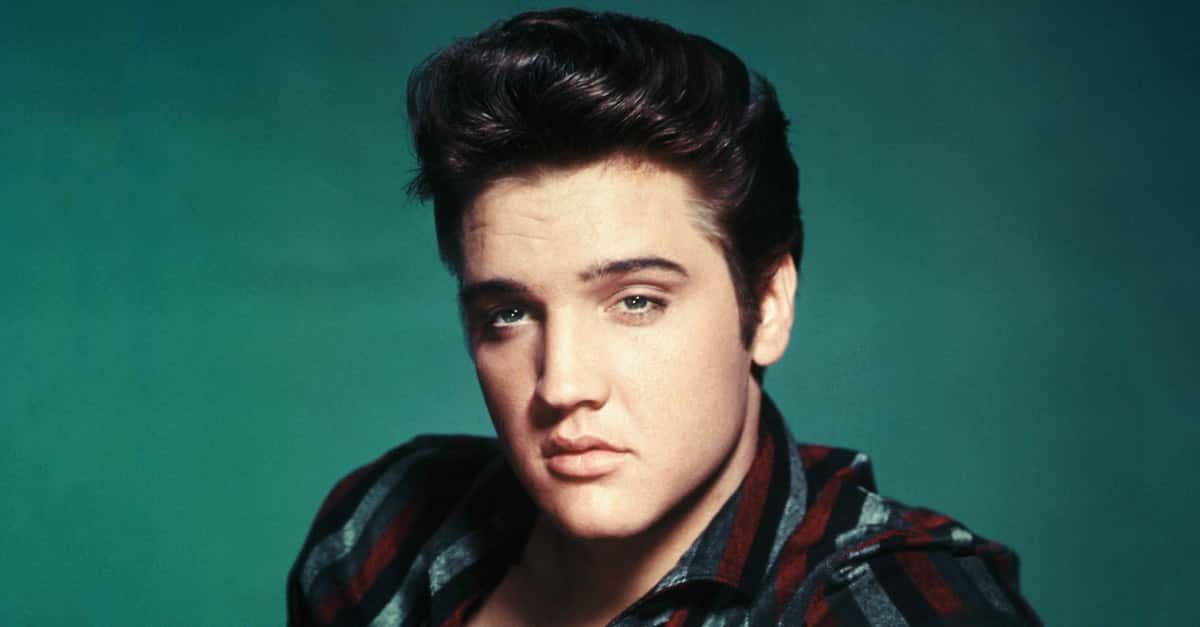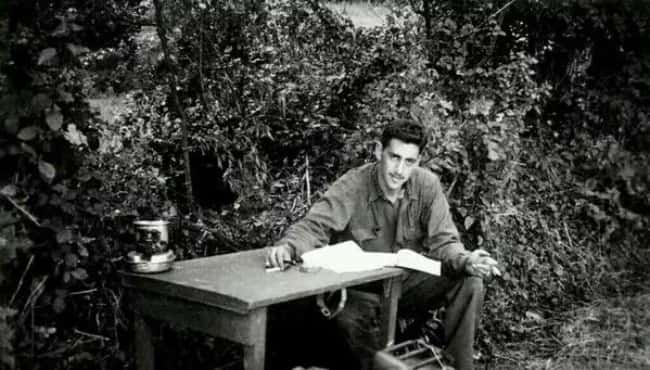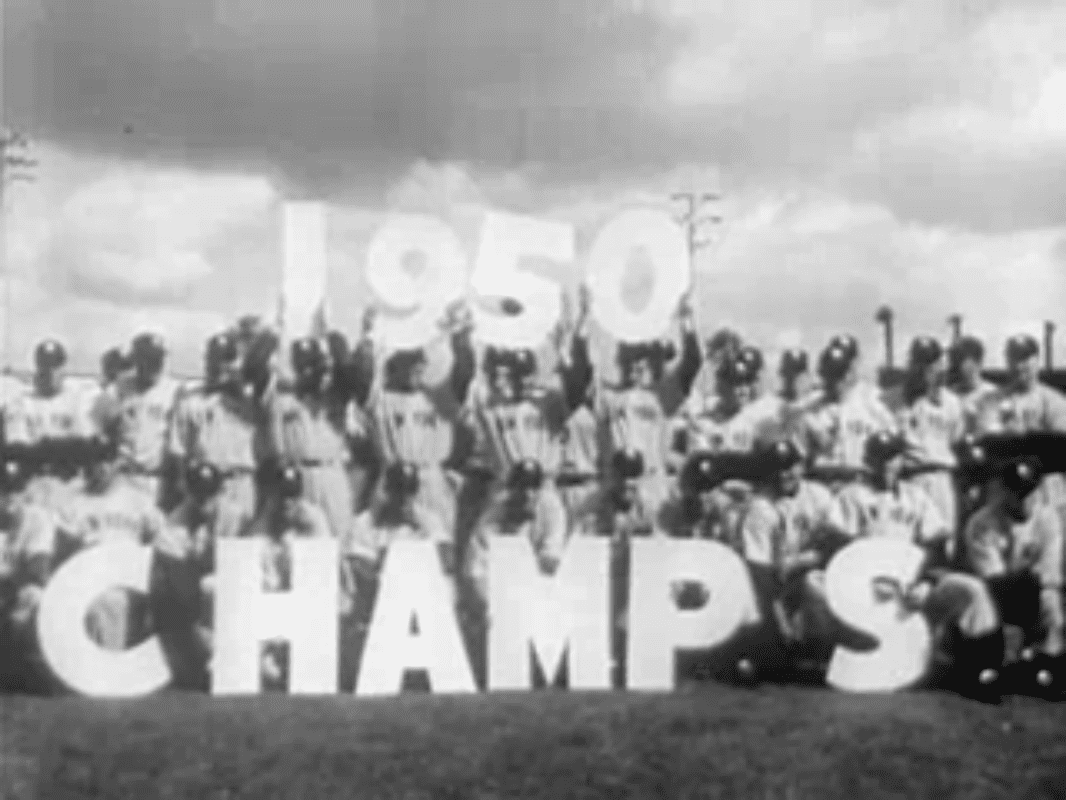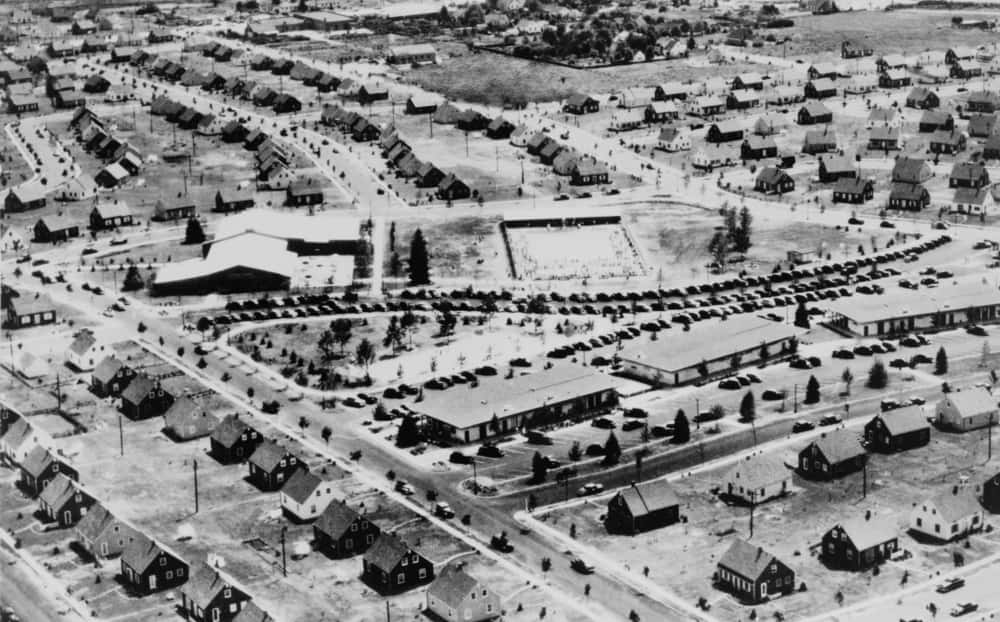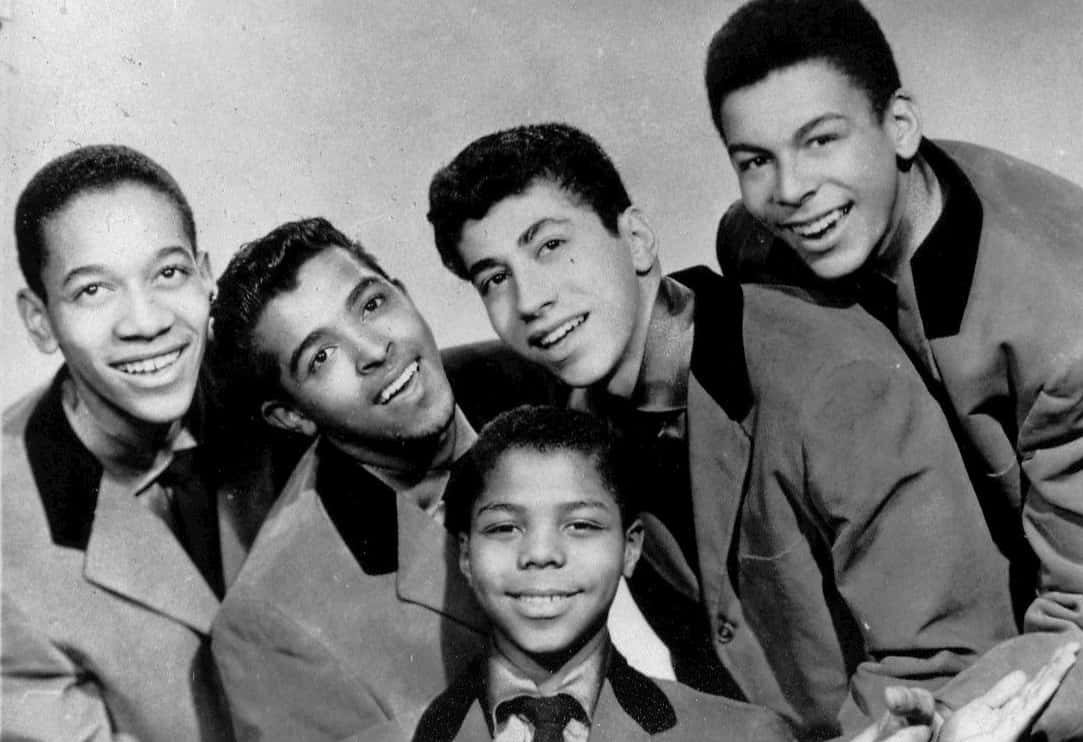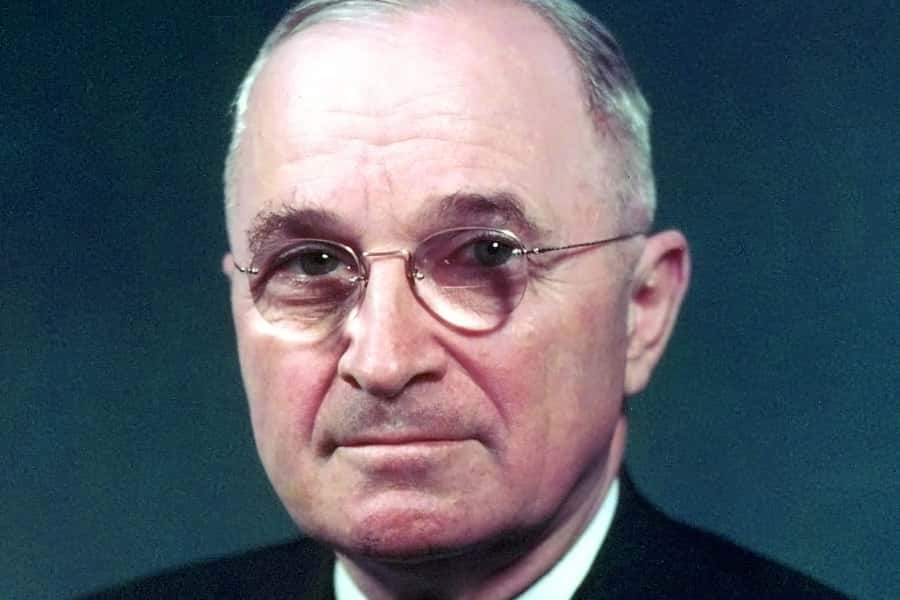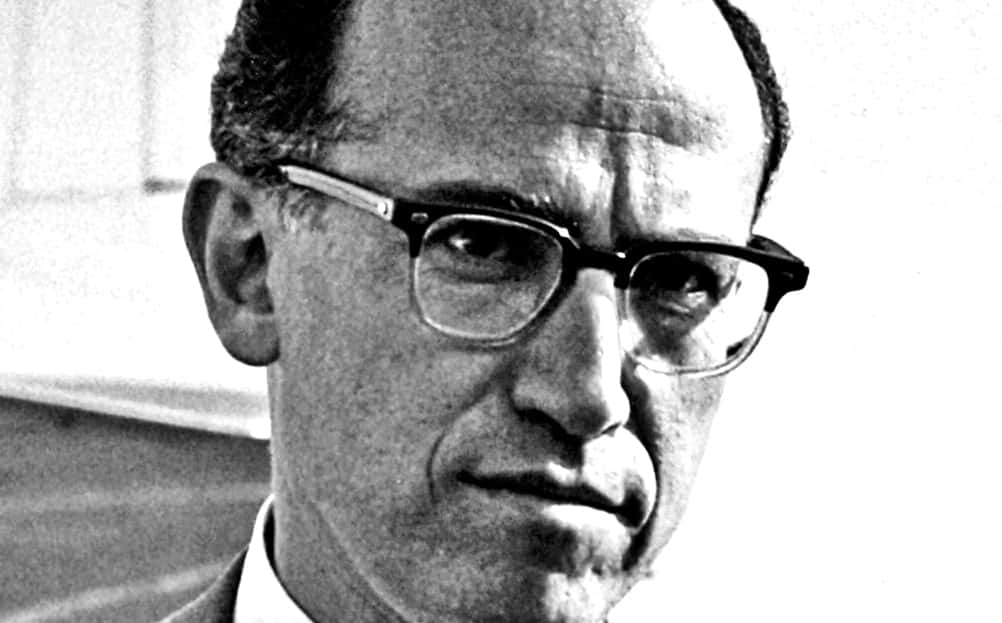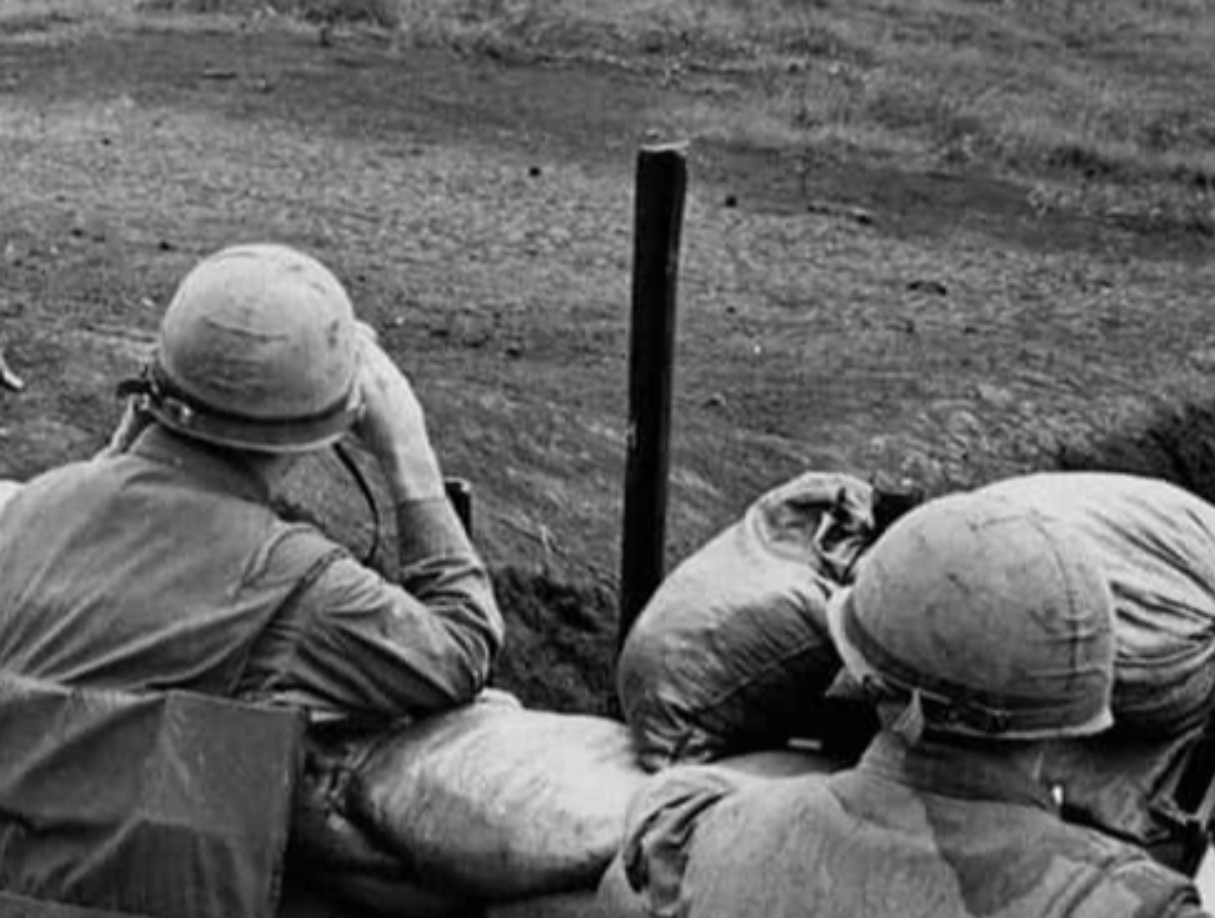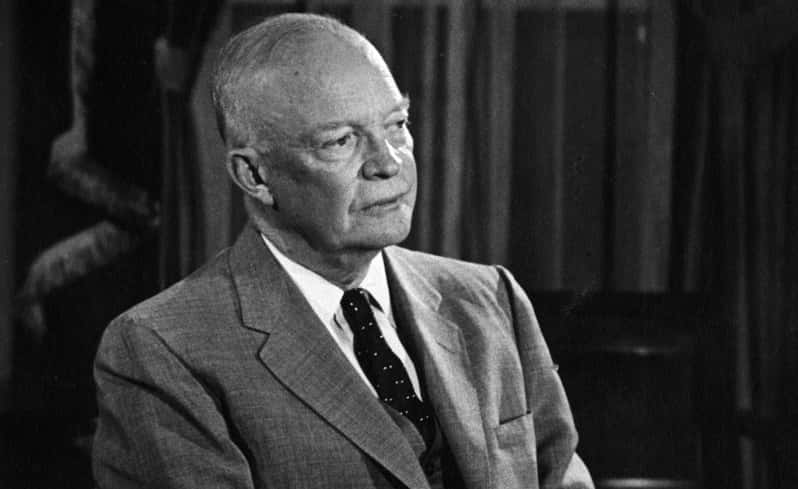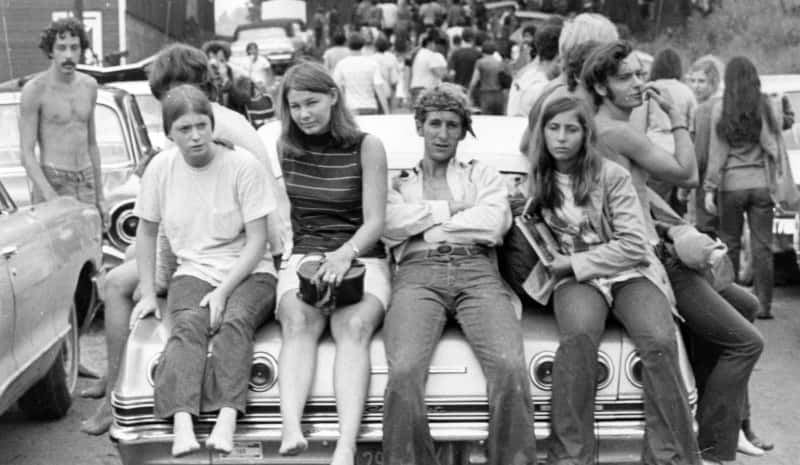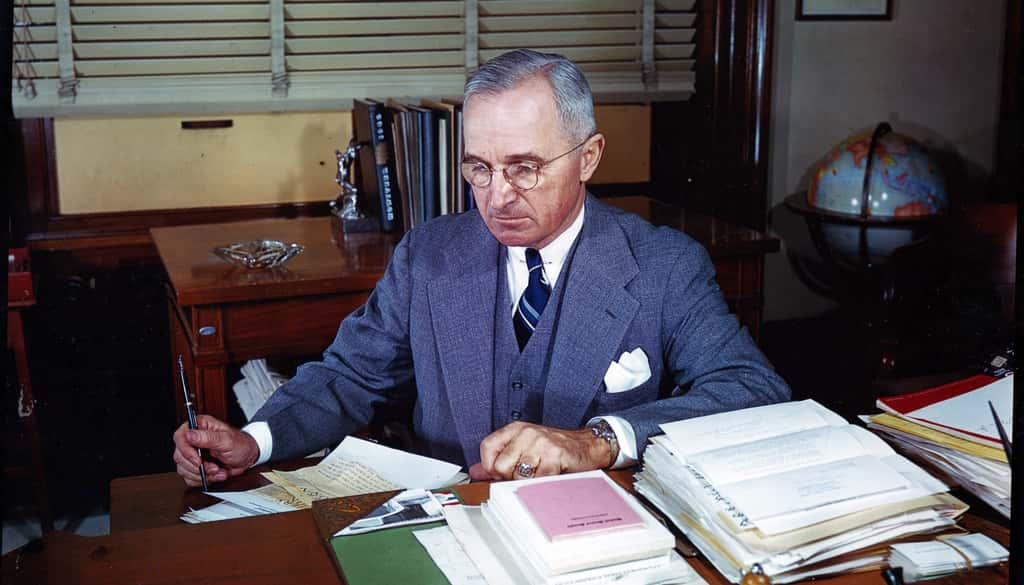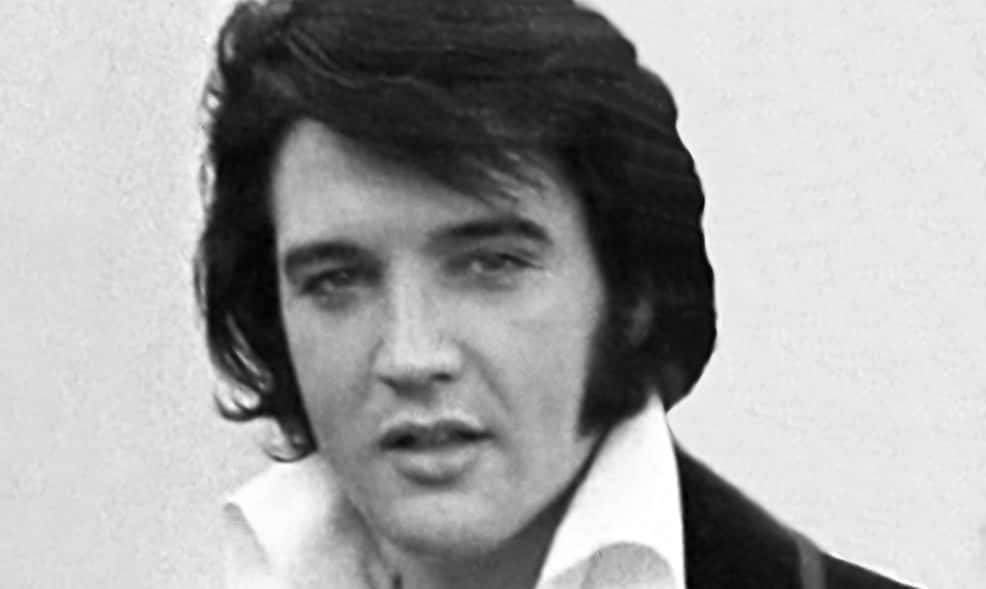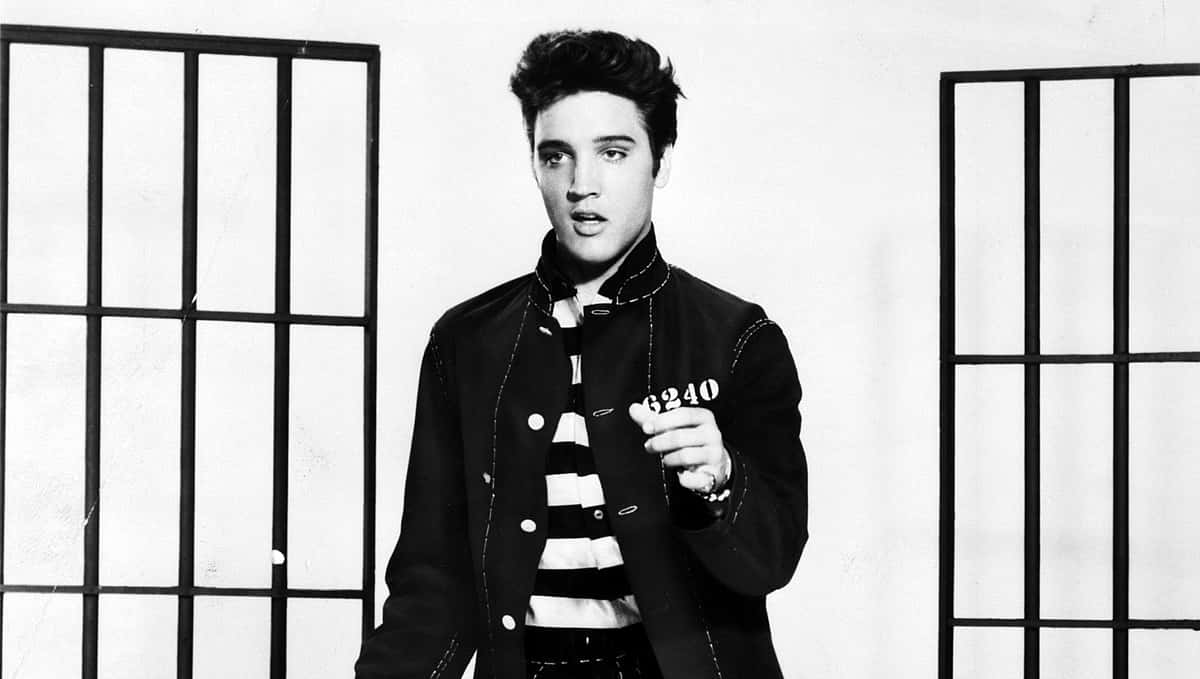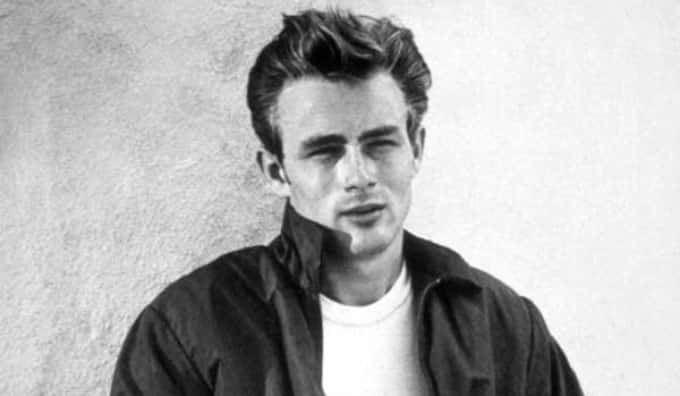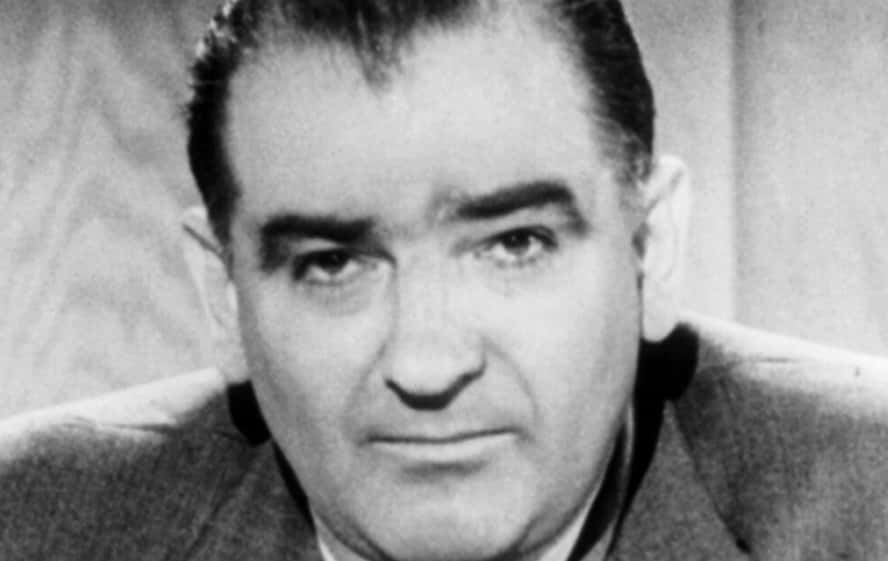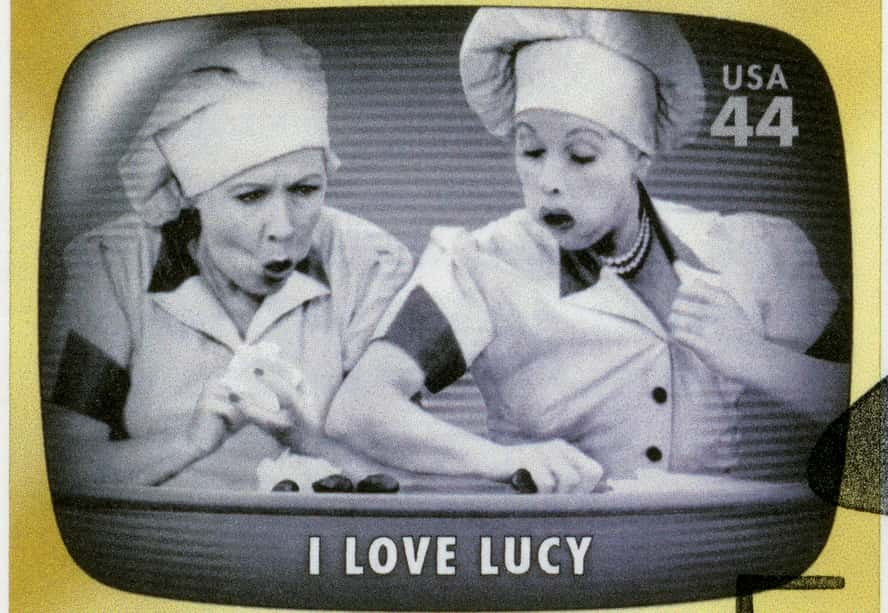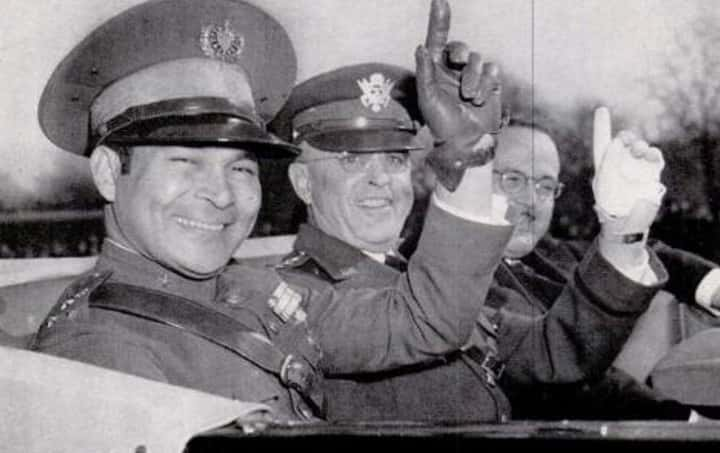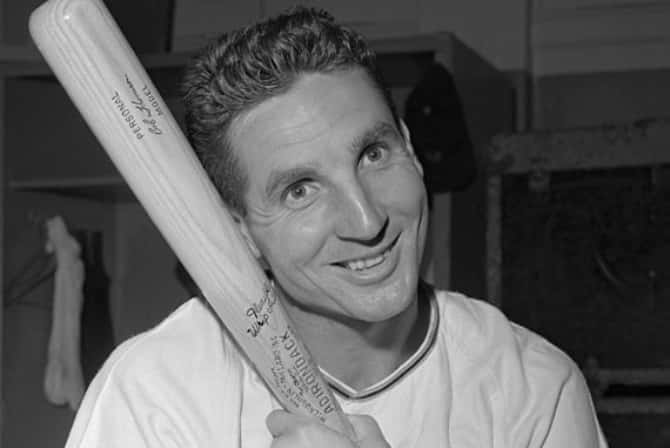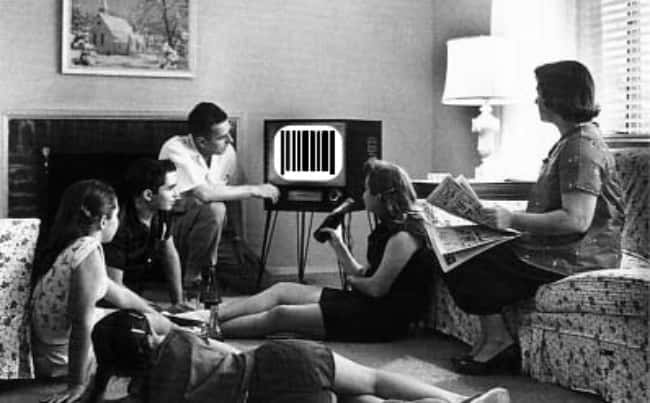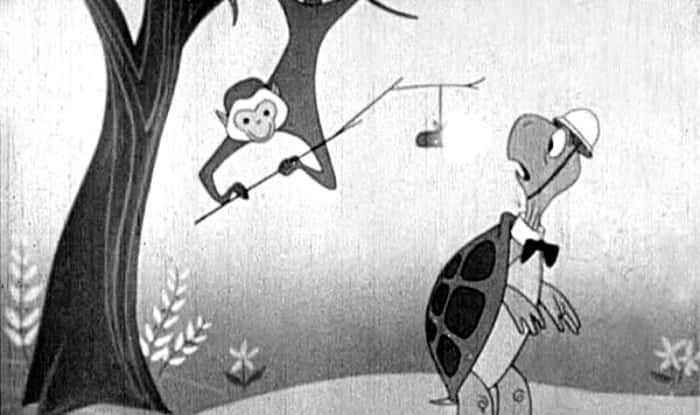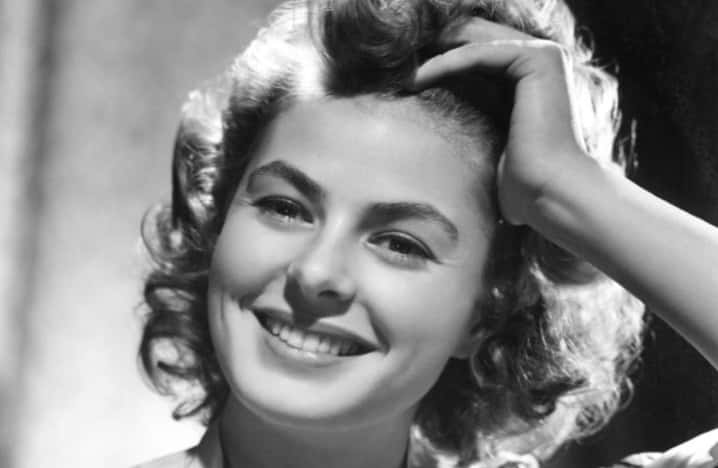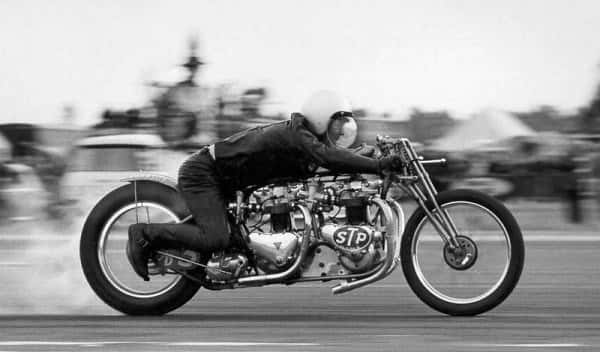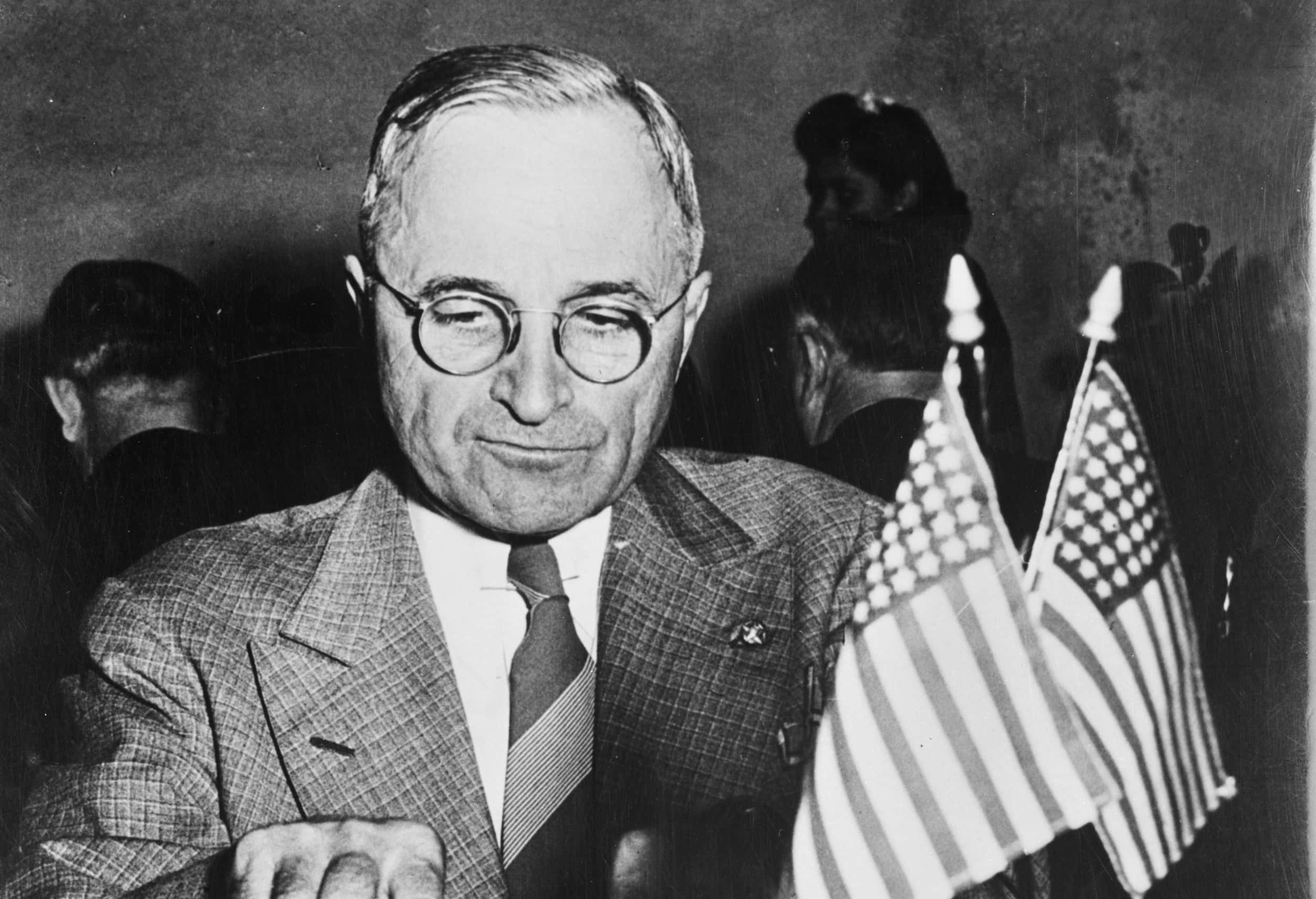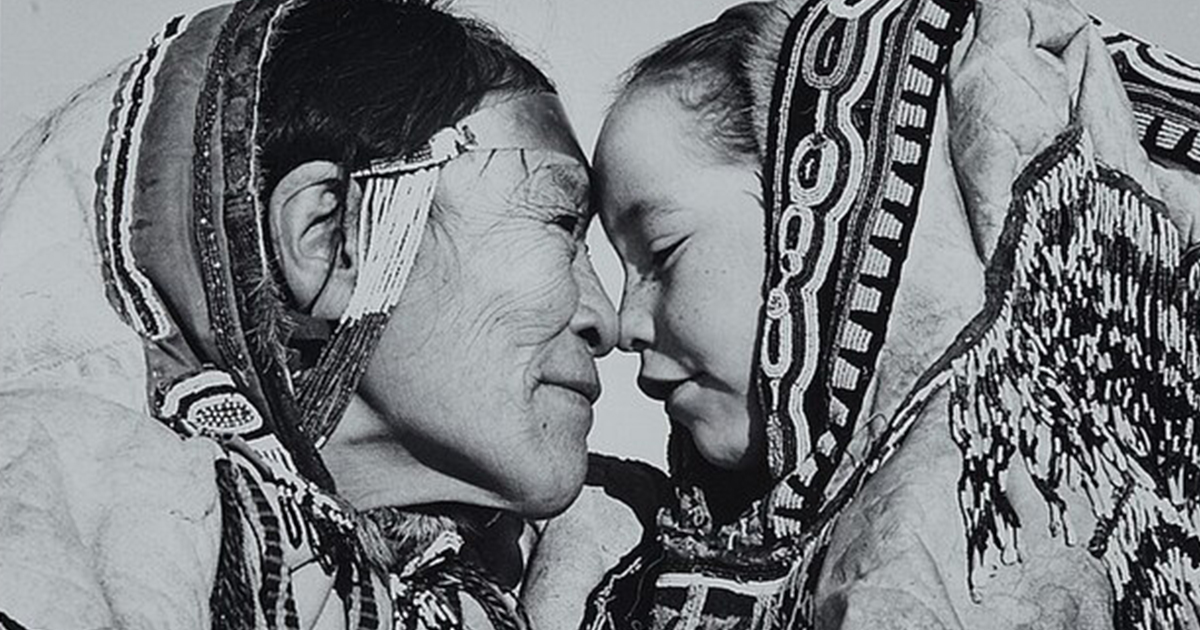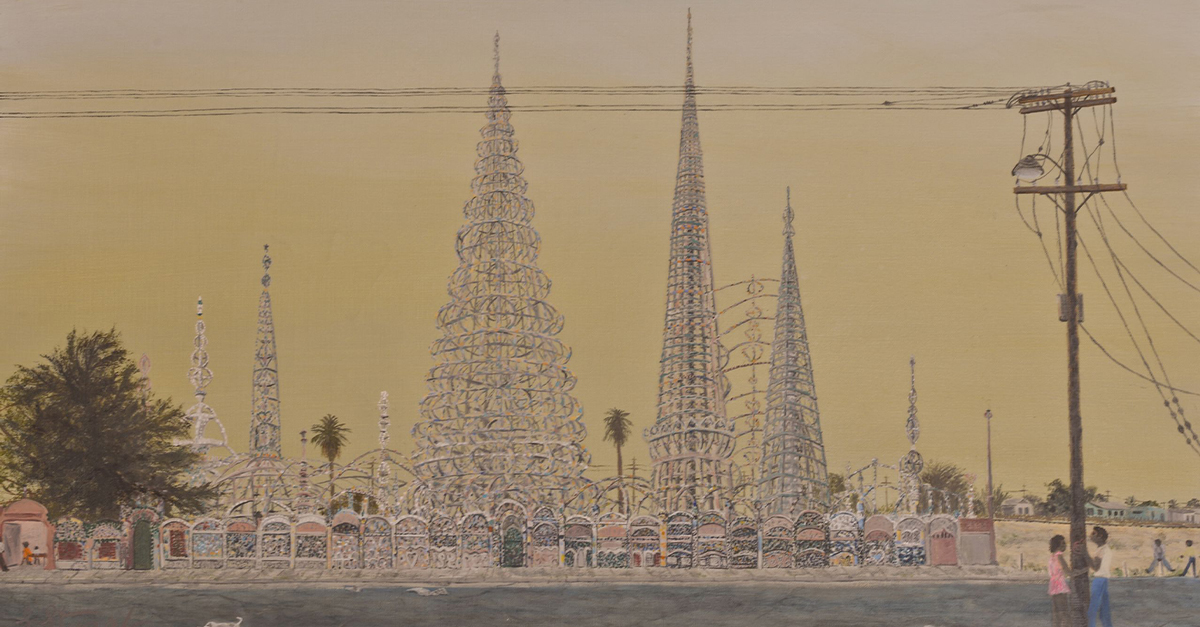“When I talk about rock n' roll, to me, that goes back to the beginning of the 1950s. Blue suede shoes and sideburns, man. Pink and black colored clothes. Turn your collar up, comb your hair in ducktails. And the music was cool. It was a whole culture then—a different world.”—Bobby Keys.
If there’s ever been an era that people automatically associate with nostalgia, it’s the 1950s. Just hearing the decade mentioned brings to mind pictures of well-dressed, clean-cut men and women, classic cars, and the birth of rock ‘n’ roll. However, as much as we all remember these aspects of the era, there was a lot more going on back then than meets the eye. Some major political, social, and scientific advancements took place, as well as many forgotten scandals and incidents. Here are 42 nifty facts to give you some perspective on what the 1950s were truly like.
1. Plagiarism
The iconic guitar riff that opens Chuck Berry’s “Johnny B. Goode” was not as original as it may have seemed when it came out in 1958—Berry appears to have "borrowed" it almost directly from another source. No, the source wasn’t Marty McFly visiting from 1985. It was a Louis Jordan song from twelve years earlier titled “Ain’t That Just Like a Woman.” If it’s any consolation, both The Beatles and The Beach Boys were later criticized for similar "borrowing" from the works of none other than Chuck Berry. I guess what goes around comes around.
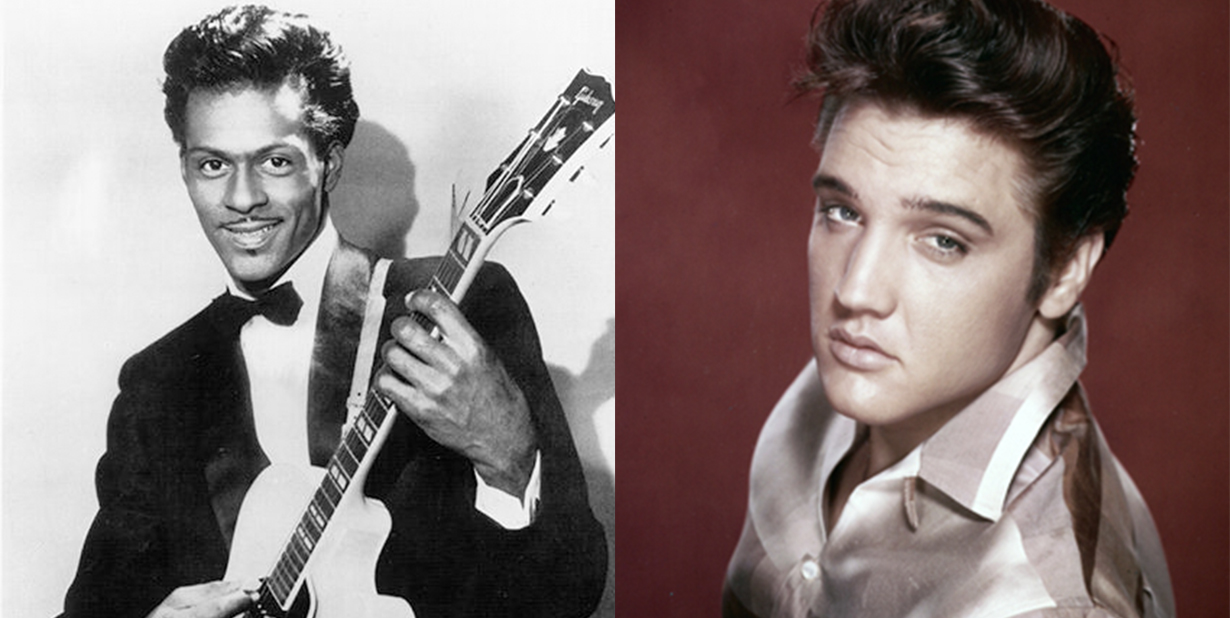
2. Take Two
The famously reclusive J.D. Salinger’s 1951 novel Catcher in the Rye is widely regarded as the most influential work of literature to come out of the decade. This may be slightly unfair though—despite the book’s release indeed having been in 1951, much of its material was actually first released in short story and serial format in magazines such as the The New Yorker and Collier’s in the mid-1940s.
3. World Record
A computer at Cambridge University has identified April 11, 1954 as the most boring day of all time—the day with the fewest significant events, births, or deaths ever recorded.
 Shutterstock
Shutterstock
4. Total Domination
Few teams in any sport have ever dominated an era to the extent that the New York Yankees dominated baseball in the 1950s. From 1949 to 1960, the Yankees appeared in the World Series ten times and won seven of those times—even starting off the decade with five straight World Series wins. Now that’s what you call a winning streak!
5. A New Lifestyle
When WWII was over, millions of young servicemen returned home to start new lives, marrying and having children in an era that is now known as the Baby Boom. While this new era excited many with its promises of peace and prosperity, it also posed a new challenge—a serious housing shortage. A real-estate developer by the name of William Levitt almost single-handedly created a solution to this problem—building the suburbs. This legacy of the rise of suburbia has remained central to the middle-class American lifestyle ever since.
6. Imperfect Founder
Despite being America’s “father of suburbia,” William Levitt was far from a perfect individual. Unfortunately, he gave into the racist views of some of his customers and segregated areas of his new communities. This meant that African-Americans and Jews were barred from buying houses in many parts of these new developing neighborhoods—despite the ironic fact that Levitt himself was of Jewish background.
7. The Great Debate
Other than rock ‘n’ roll, the musical genre most associated with the 1950s would have to be “Doo-wop”—a style involving vocal harmonies usually built on nonsense syllables such as, appropriately, “doo” and “wop”. There is an ongoing debate among fans of this genre as to who exactly originated the term first, as the two earliest known songs to feature the term, “In the Still of the Night” and “When You Dance” both came out in the same year.
8. Life is a Highway
When the cutting edge Interstate Highway System was constructed in the latter half of the decade, it revolutionized the way America operates and has remained fundamental to the country’s functioning to this day. You might be interested to know that this whole system was built for a not-so obvious reason—President Dwight Eisenhower had been concerned since participating in a 1919 cross-country military envoy that without a modern and thorough system of roads, the country could be in immense peril should an unforeseen emergency or conflict arise without the ability to quickly and efficiently move from place to place. So the next time you’re driving down an interstate, just remember that it wouldn’t be there if not for national security threats!
9. Incomplete Progress
Though the 1950s were, in many ways, a time of great progress towards civil rights for African-Americans, they certainly were not perfect on this front. In the music industry, despite the fact that many of the popular styles of the day were of black origin, record companies were nevertheless reluctant to advertise this potentially controversial fact to some of their audience. This meant that it was common for record companies to omit photographs of some artists or, in some cases, to have white artists cover their songs before promoting them.
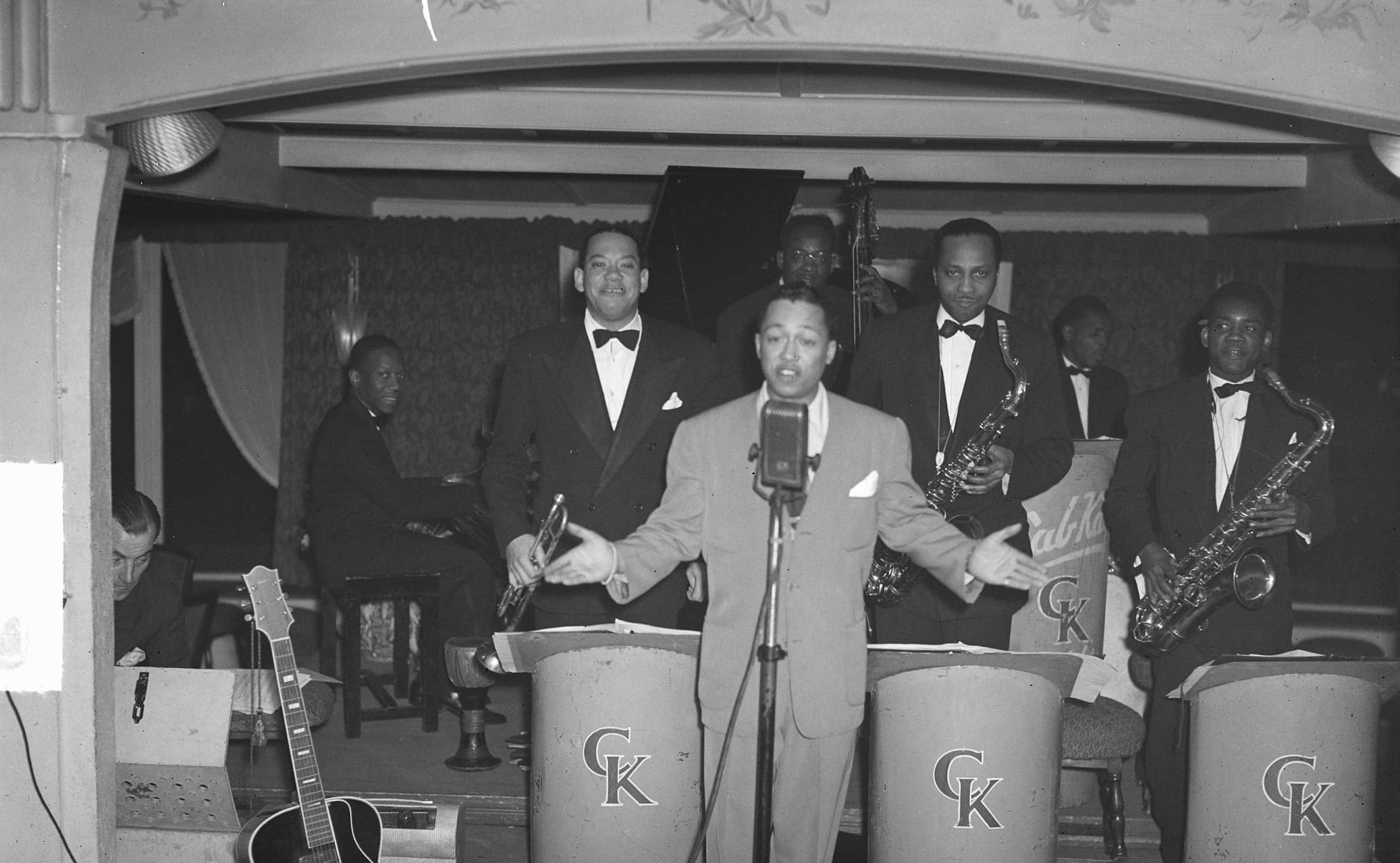 Wikimedia.Commons
Wikimedia.Commons
10. Double-Edged Sword
Although racism existed in the music industry at this time, music was also one of the primary breeding grounds for social change on this front. Some believe that by rock ‘n’ roll and Doo-wop music indirectly introducing much of the population to black culture, a degree of bond and sympathy was established that ultimately translated into political support for equal rights just a few short years later.
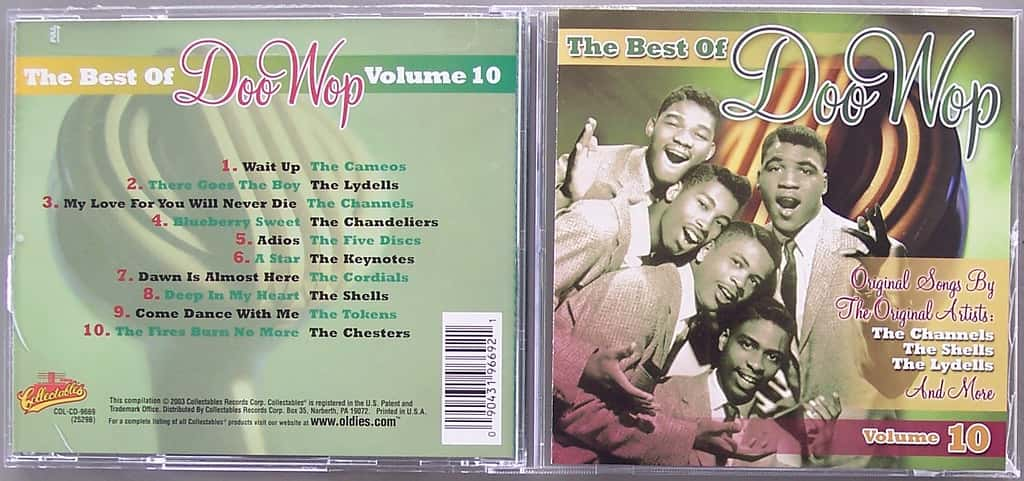 Flickr
Flickr
11. Technicality
Because President Truman never went through the process of getting Congressional approval for the era’s Korean War, the American government officially views its entire involvement in the conflict as merely “police action.”
12. One Big Leap for Mankind
One of the most important scientific achievements of the 1950s was the invention of a polio vaccine by Dr. Jonas Salk in March 1953, an announcement which, in just four short years, led to a drop from 58,000 cases of the crippling disease in the United States to under 6,000.
13. If at First You Don’t Succeed
The same Democratic candidate, Adlai Stevenson, ran and lost against Dwight Eisenhower in both the 1952 and 1956 presidential elections. After that, he never gave us the chance to find out if third time would be the charm.
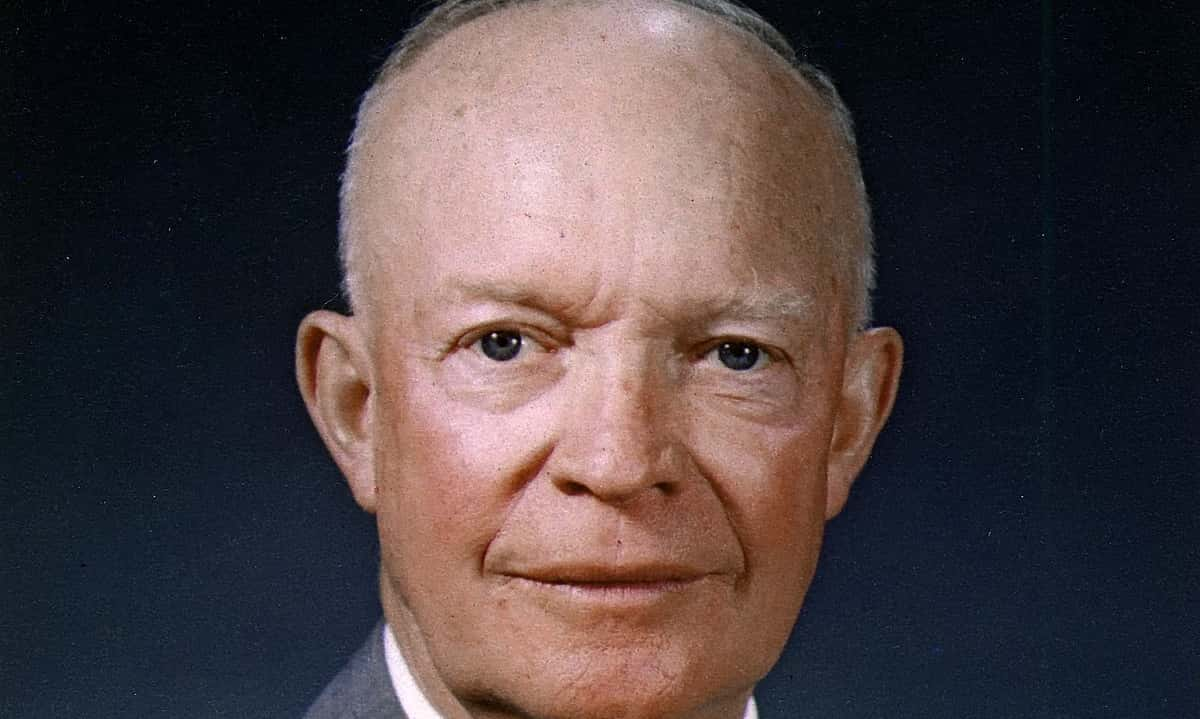 Wikipedia
Wikipedia
14. Inside the Box
TV really came into its own in the 1950s, and went from a rare novelty to a staple of the national culture and lifestyle almost overnight. In 1949, fewer than a million households in the United States had television sets, whereas 88% of them had at least one by 1959—and the numbers would only grow from there.
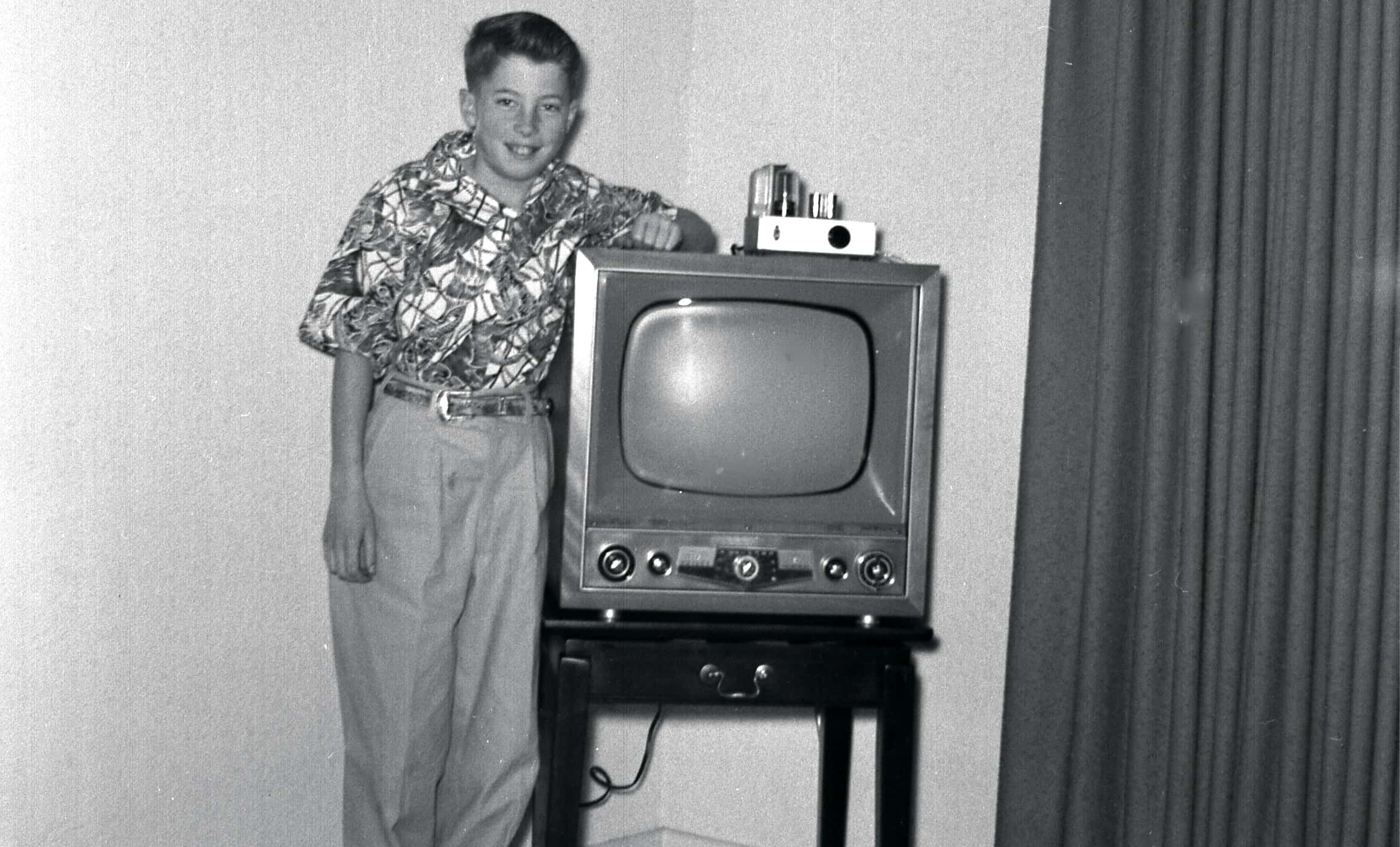 Wikimedia.Commons
Wikimedia.Commons
15. Humble Beginnings
Although the Vietnam War is almost universally associated with the political turmoil of the late 1960s, the conflict that would ultimately escalate into the bloodbath remembered by most today actually began as far back as 1954.
16. S...ay What?
The "S" in the name of President Harry S. Truman, the man who lived in the White House at the decade’s start, does not actually stand for anything, and is meant to represent the memory of both his grandfathers—whose names each began with the letter “S.”
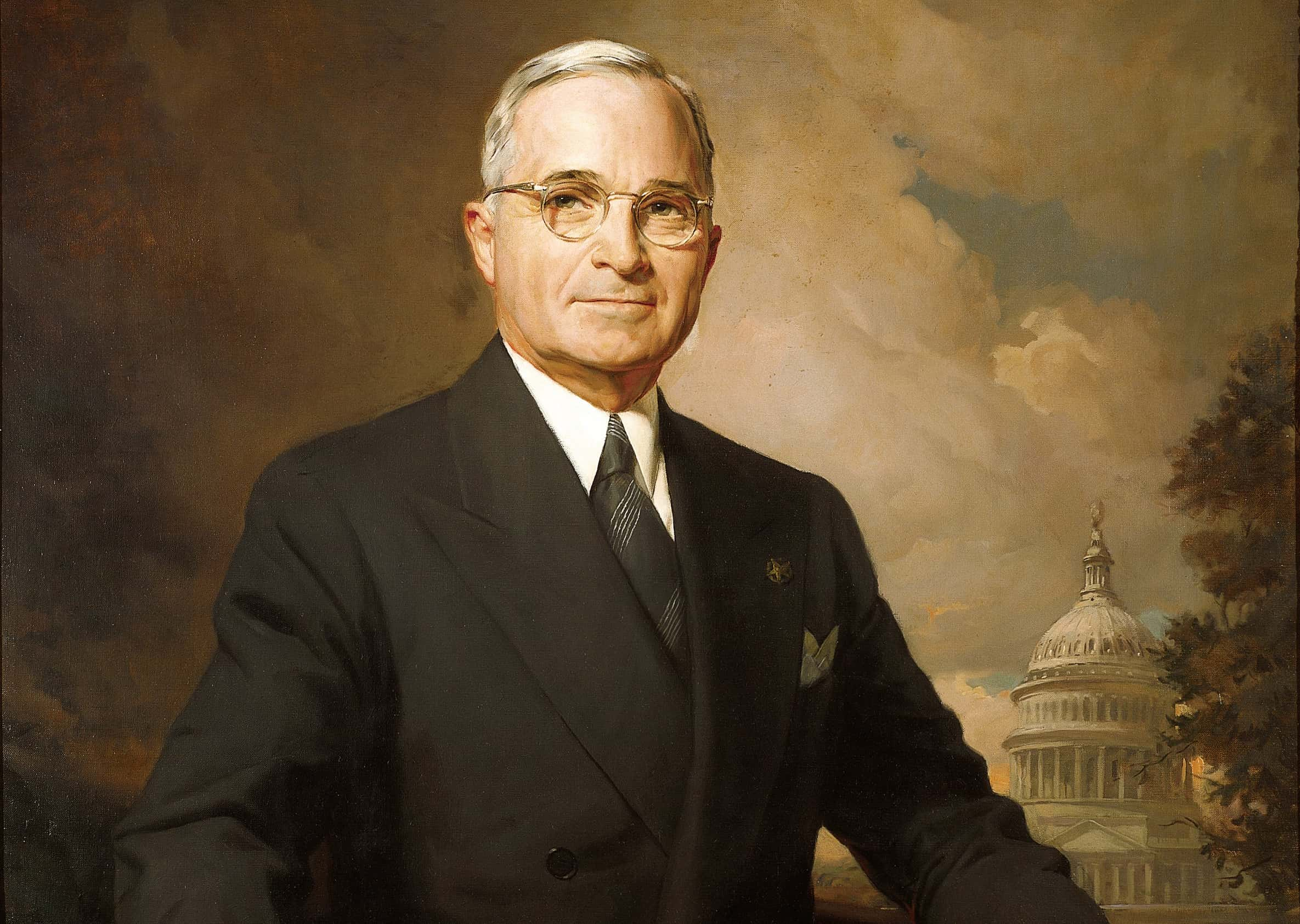 Pixabay
Pixabay
17. Looking Upward
The words “Under God” were added to the US Pledge of Allegiance by Congress and President Eisenhower in 1954, as an attempt to differentiate American values from communist ones during the Cold War era. This was the second time that the Pledge had been altered from its original 1892 format, which had been intended as a generic, unifying credo for all people, which didn’t even mention the United States, let alone God.
18. Appearance Versus Reality
The 1950s are often portrayed in pop culture as a peaceful, carefree time and as the object of nostalgia. Look no further than Grease, Happy Days, and Back to the Future as examples of pop culture’s interest in that vision of this era. Nevertheless, some historians find this idea ironic, noting that for those actually living through the time, fears over the threat of nuclear conflict permeated everything and is not something they likely feel themselves missing too often.
19. Times Have Changed
In the political landscape of today, it is virtually impossible to imagine a US presidential contender openly volunteering for Planned Parenthood—yet both presidents from the 1950s, Harry Truman and Dwight Eisenhower, served as honorary co-chairmen of that very organization’s fundraising committee. Who would have imagined!
20. Change
There was one incident that mostly went unnoticed in the 1950s but proved to have a huge impact down the road. That was the Peter Wildeblood case in the United Kingdom, in which a group of aristocrats was imprisoned for committing acts of homosexuality. While in prison, Wildeblood was allegedly so annoyed by the assumed damage to his reputation that his case would cause that it motivated him to become an activist for the cause of decriminalizing homosexuality after his prison term ended. Many believe that this and his other subsequent activism was the direct catalyst for the rise of the modern gay rights movement that has grown exponentially and become a major mainstream political consideration in the 60 years since.
21. Predictions Gone Wrong
At the time when Elvis Presley stormed the music scene in 1956, the biggest recording star in rock ‘n’ roll had been Pat Boone. These two young stars, born just months apart and both raised in Tennessee, matched each other record for record on the hit lists for the next year and a half—causing the media and the public to take a major interest in which one would ultimately become the genre’s true “King." Although we now know just how incomparably successful Presley went on to be, critics at the time actually predicted that the more conventional singing style of Boone would be the one to outlast the new and innovative style of Presley.
22. Rivalry?
Despite the public and critical interest in the narrative of the 1956 Pat Boone/Elvis Presley rivalry, two people who did not view the situation as such were none other than Pat and Elvis themselves. Neither of them had any hard feelings towards one another and at times even joked about the exaggeration of their relationship in the media. In fact, the two of them were actually friendly in real life and Elvis had even been the opening act at Pat Boone’s shows prior to his national success. You might even say that, at least in part, we have Pat Boone to thank for Elvis. Doesn’t sound like the most heated rivalry to me!
23. It All Started with a Milkshake
McDonald’s is primarily known today for its burgers and fries, but it was one additional menu item in the early days that made all the difference. Because the original restaurant in California took pride in its milkshakes, a “Multimixer” salesman by the name of Ray Kroc was drawn inside to try and sell them his product in 1954. That was the beginning of a chain of events that would lead to Kroc turning McDonald’s into the worldwide mega-chain we all know and love, and bringing the fast food industry to life during the 1950s.
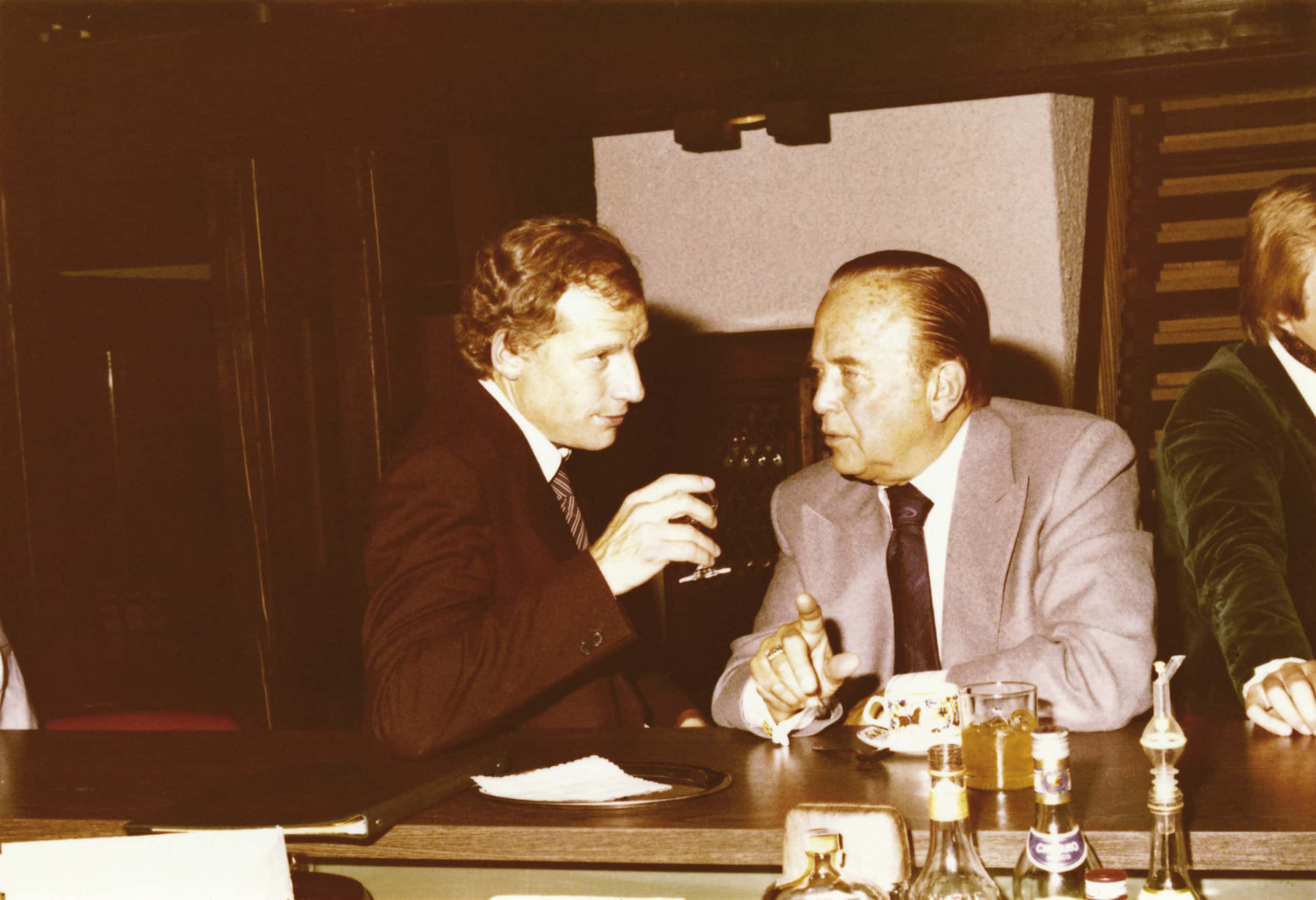 Wikimedia.Commons
Wikimedia.Commons
24. Legacy
1950s movie legend James Dean only ever made three movies—two of which he didn’t even live to see released. After dying in a 1955 car crash, Dean became the first ever non-living actor to be nominated for an Academy Award.
25. Skipping to the End
James Dean began his acting career the way most former stars end theirs—appearing in a TV commercial. In Dean’s case, it was for Pepsi. I guess when you die at 24, you have to speed up the process on these things.
26. McKarma
Many remember the era of McCarthyism as one of the most contentious periods of the 1950s. Its abandonment of normal due process procedures and emphasis on unfounded allegations ruined the lives and careers of many innocent victims and created a dark spot on Congressional history. However, did you know that its namesake, Senator Joe McCarthy, did not even live through to the end of the decade, dying of cirrhosis of the liver in 1957 at the age of 48? I would imagine that there were quite a few people at that time who didn’t shed many tears for him—including some of his peers in the Senate who actually censored and condemned his conduct in 1954.
27. Epic Episode
TV was so popular in the 1950s that 15 million more people watched a January 1953 episode of the sitcom I Love Lucy in which Lucy gave birth than tuned in for President Eisenhower’s inauguration the following day. To be fair, though, it was the most publicized episode of Lucy of all time due to both hype and buildup on the show, as well as the fact that Lucille Ball gave birth in real life on the same day.
28. What a Difference 60 Years Makes
Prior to the fall of the Batista government and the rise of the communist Castro government in Cuba in 1959, the island country had become a major tourist destination for Americans throughout the 1950s. Given its close proximity to Florida and the availability of low-priced transportation and accommodations, pre-embargo Cuba even hosted some of America’s biggest stars during these years. One historian even describes Cuba at the time as “what Las Vegas has become” in the minds of many Americans today.
29. Shot Spied On ‘Round the World
Many sports fans know about Bobby Thomson’s pennant-winning 1951 “Shot Heard ‘Round the World” walk-off home run that sent his New York Giants to the World Series. Not everyone, however, is aware that there was a serious controversy surrounding that team and even that very game. Many people believed that the Giants had been stealing signs from their opponents using a telescope and a buzzer wire—and that this was the true source of their late-season success. Although Thomson denies this, some insist that his shot would have been heard ‘round nowhere if not for this tactic.
30. Influence
The 1950s are considered television’s “Golden Age,” and there’s no denying that the popularity of the new medium during this era was enormous. Experts believe that since TV allowed millions of Americans to watch the same shows, a new a sense of togetherness was fostered throughout the country as a result. They also say it likely introduced people to relatable characters from across cultural and regional divides that were previously foreign and unfamiliar to some viewers. See, TV is good for something after all!
31. Supreme Court Ruling, Come On Down!
The Federal Communications Commission took the American Broadcasting Corporation all the way to the Supreme Court in 1954 over the question of whether game shows are a form of gambling, and therefore unfit for television. Lucky for all us trivia buffs and/or people hoping for very public ways to try and make a lot of money in a short period of time, the court sided with ABC.
32. Betrayed
One of the biggest scandals of the decade came when it was revealed that several high-profile TV game shows had been rigging their results to favor certain contestants whom the execs felt would bring them better ratings. This scandal so betrayed the public’s trust in the industry that it would take more than a decade before the game show genre lost its taboo and returned into the mainstream of TV.
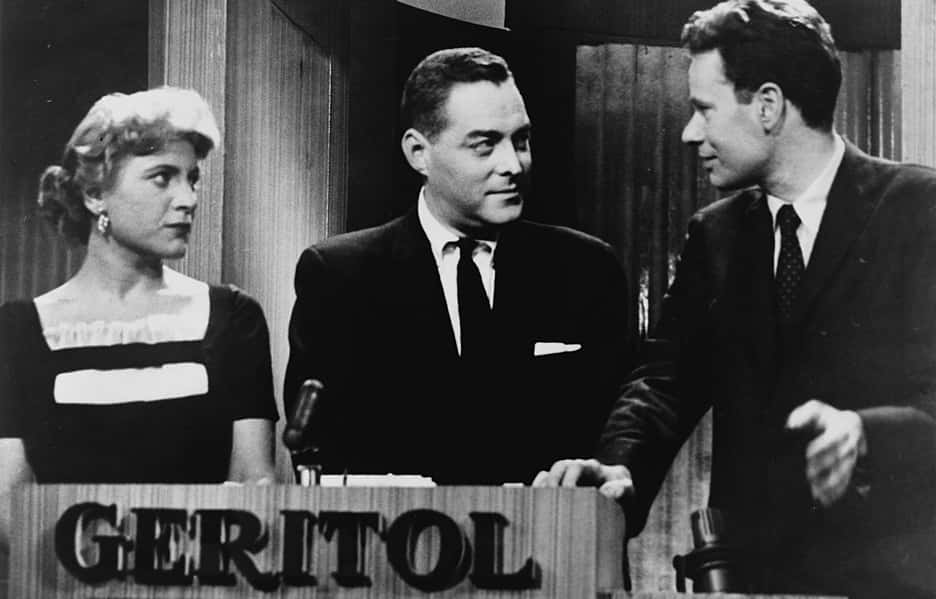 Wikiepdia
Wikiepdia
33. Gold Record
Chuck Berry’s 1958 smash hit “Johnny B. Goode” was so popular and influential that it was selected as one of the songs featured on the “Golden Record” affixed to the Voyager space probe—a record designed to transmit the greatest cultural achievements of human history to any hypothetical alien civilizations that someday, millennia in the future, stumble upon the spacecraft floating around aimlessly long after completing its mission in our Solar System.
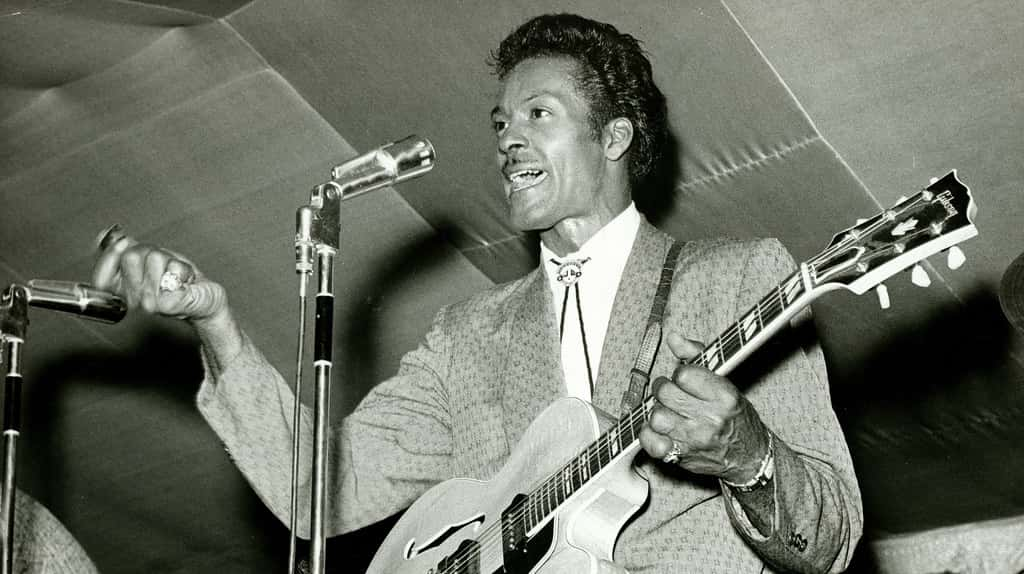 Flickr
Flickr
34. Rock of Ages
One of the earliest and best-known rock ‘n’ roll hits was Bill Haley’s “Rock Around the Clock”, released in 1954. Despite this song being remembered as the era’s anthem of teenage rebellion and counterculture, it took almost a year after its release and three years after initially being written until it even reached the status of a mild hit. After all, they never did say at which speed they’d be rocking around the clock.
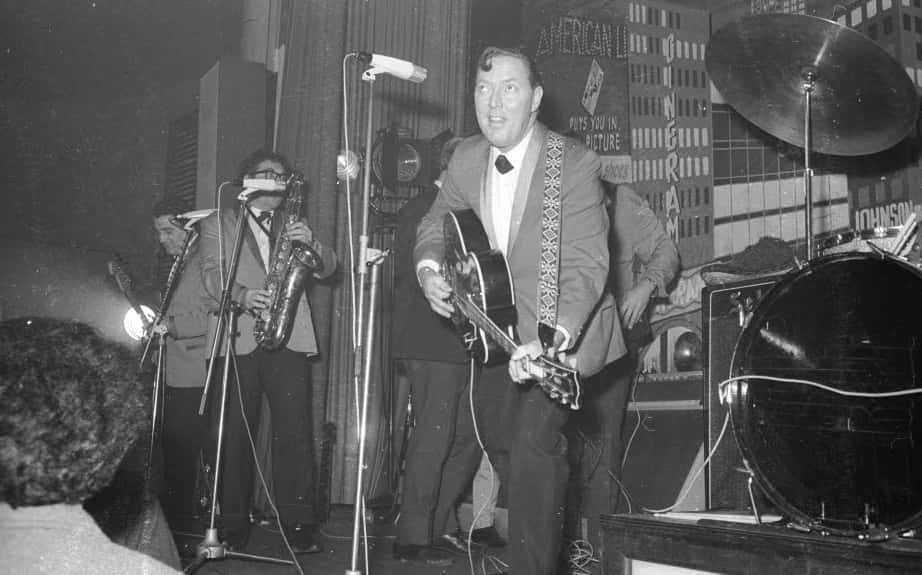 Wikimedia.Commons
Wikimedia.Commons
35. Ahead of Its Time
Although it didn’t quite take off the way TV did, the first commercial computer, known as the UNIVAC, came out on June 14, 1951.
36. Man of Many Talents
Before he got into tearing down walls, future President Ronald Reagan spent the 1950s as a fairly popular actor, notably starring in films such as 1951’s Bedtime for Bonzo—in which he tries to teach ethics to a chimpanzee. Despite the popularity of this soon-to-be cult classic, Reagan himself didn’t even bother to actually see the movie until 1984.
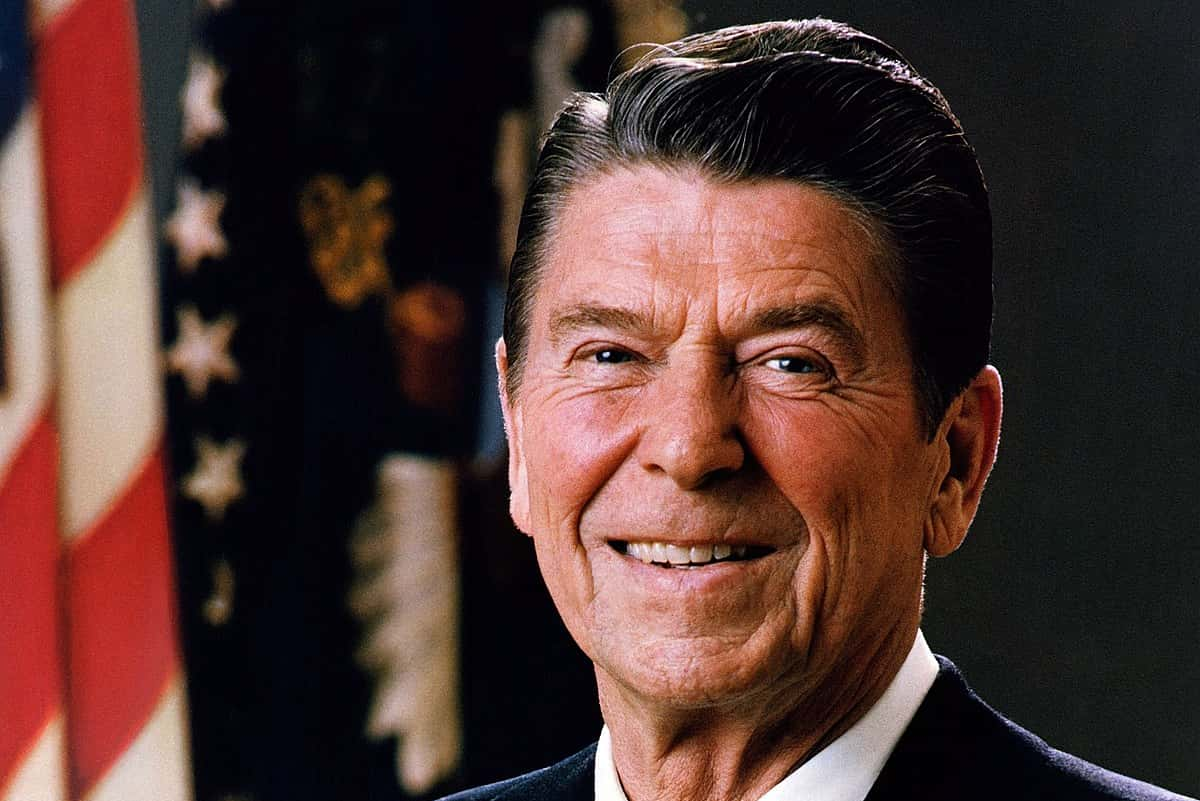 Wikipedia
Wikipedia
37. Open Roads
Beatniks, often thought of as the 1950s precursor to the hippies of the 1960s, got their influence from the Beat generation of writers and poets, most famously Jack Kerouac and his novel On the Road. The book received critical praise early on, but that praise was quickly replaced by a massive backlash, which Kerouac found greatly discouraging. Nevertheless, the book spawned a sizeable counterculture and remains notoriously well-known to this day.
38. Duck and Cover
The constant fear of a nuclear attack by the Soviet Union throughout the 1950s was so prominent that a cartoon character named Bert the Turtle was created to teach children how to “duck and cover” under their desks in the event of a devastating blast from the East.
39. Tinseltown
Hollywood was no less scandalous in the early ‘50s than it is today. Swedish-born actress Ingrid Bergman was caught in the middle of it all when it was reported that she was having an affair with director Roberto Rossellini and had gotten pregnant with his baby—much to the surprise of her husband. While the incident shocked movie fans worldwide, the two soon left their spouses and married each other, only to get divorced a few years later. It would be a while until the public would forgive and forget this incident and let Bergman return to her former job on the big screen.
40. Early Grave
Many people remember ‘50s pop culture and music revolving around themes such as romance and innocence. It may surprise you to learn of one particular trend that completely defies this stereotype—the trend of “teenage tragedy songs.” Yes, it’s true—beginning in 1955 with the song “Black Denim Trousers and Motorcycle Boots,” a recurring fad was created of songs depicting teenage dates gone seriously wrong, usually resulting in the tragic and untimely demise of one of the characters. What was the appeal of this exactly? Your guess is as good as mine...
41. Alternate History
The decade could have charted a very different course if one mostly forgotten event early on had resulted differently—when someone attempted to assassinate President Truman in November 1950. Two militants acting in the name of Puerto Rican independence stormed the lawn of Blair House, where Truman was temporarily staying due to the White House being renovated. They opened fire on security guard Leslie Coffelt, who returned fire. Although Coffelt got hit by a shot that would ultimately kill him, he still managed to fire back and kill one assailant while the other was stopped by Secret Service, ending the threat to President Truman’s life.
42. Identified Flying Objects
Maybe in part due to the popularity of sci-fi at the time, the ‘50s saw many reports and allegations of UFO sightings. In 2015, it became clear that maybe not all of these observers were as crazy or deluded as you might think—the CIA admitted that many alleged UFOs spotted during that period were actually the government’s top secret high-flying planes.
Sources: 1, 2, 3, 4, 5, 6, 7, 8, 9, 10, 11, 12, 13, 14, 15, 16, 17, 18, 19, 20, 21, 22, 23, 24, 25, 26, 27, 28, 29, 30, 31, 32, 33, 34, 35, 36, 37, 38, 39, 40, 41, 42, 43

